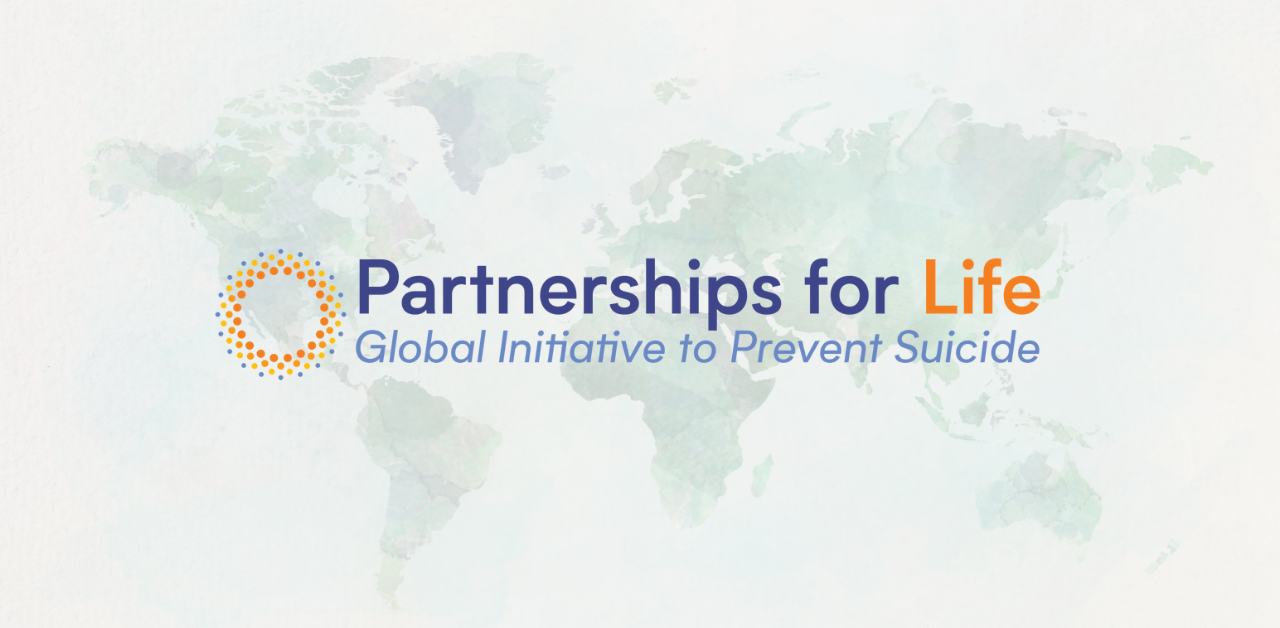In April 2023, Partnerships for Life launched its first series of workshops on National Suicide Prevention Strategies in the Americas organized by IASP Americas Region Lead, Dr. Mark Sinyor, and Research Assistant, Mr. Daniel Sanchez Morales. Four workshops were delivered, two in English and two in Spanish. They took place on April 28th, May 3rd, and May 5th. In total, nine countries presented: Argentina, Brazil, Canada, Colombia, Costa Rica, Dominican Republic, Ecuador, Mexico, and USA; approximately 50 partners attended across the Americas region and one partner joined from the Africa region.
The discussions were engaging and productive. Partners had the opportunity to share thoughts regarding strengths, challenges/limitations, and observations on their respective national prevention strategies and/or activities. Partners identified the following as important factors and considerations in the creation and implementation of national strategies:
- Stigma surrounding suicide is one of the biggest challenges, particularly in the Caribbean, Central and South American regions. Partners explain that barriers to speaking about suicide and its prevention are major hurdles to starting the conversation about preventive strategies. The lack of discussion poses a challenge to create and promote mental health laws and policies, which consequently limits the possibility of governments broadening their view of suicide as a public health issue rather than just a stigmatized health problem.
- A major agreement among partners is how difficult it has been to translate existing laws into practice due to a variety of implementation barriers.
- Funding remains a major issue in many countries with stigma and lack of public awareness, creating challenges. Partners commented that their governments often reduce or limit overall health expenditures for mental health programs and services, making it difficult to maintain the necessary infrastructure to provide initial attention and support to individuals at higher risk of suicide. Furthermore, most resources are centralized in urban areas, limiting access to support and adequate information to people living outside major cities.
- In cases where funding is available, shifts in the political climate may be a threat to prevention strategies. Partners explained that changes in the political party forming government and in political agendas may hinder or end prevention initiatives such as crisis lines, community support programs, and low-cost mental health services, among others.
- Media reporting is also a concern across the Americas. Coverage that stigmatizes or propagates harmful myths remains common in many countries.
- There was general consensus among partners about the importance of moving away from a narrow, biomedical concept of suicide and its prevention toward a more holistic approach that accounts for the psychosocial determinants that impact suicide. They highlighted the importance of interdisciplinary knowledge and intersectoral participation in designing effective strategies.Another substantial challenge highlighted was data quality problems and, specifically, the underreporting of suicide cases. Partners identified two main sources of this problem: stigma and lack of training. Stigma surrounding deaths by suicide may result in no reporting
or misreporting and classification as due to a different cause. Partners explained that professionals in charge of reporting deaths may also not be optimally equipped with the knowledge and resources to identify deaths as suicide events.
Partners reflected on immediate action items for the initiative going forward. First, they agreed on the importance of finalizing our situational analysis of suicide and prevention across the Americas, delineating what has been done, what has been effectively implemented, and, in particular, which efforts in specific countries might be portable and adaptable to others in the region. Second, there was agreement that it is important to use our partnership to help exert international pressure on governments and stakeholders to create change. Finally, there was consensus on the importance of “low-hanging fruit”, small practical efforts and advances that we can begin implementing without major funding or government assistance (e.g., individual and small group training sessions, webinars, media guidelines, etc.).
For the full report, including individual country reports, click here.
For the spanish version, click here




